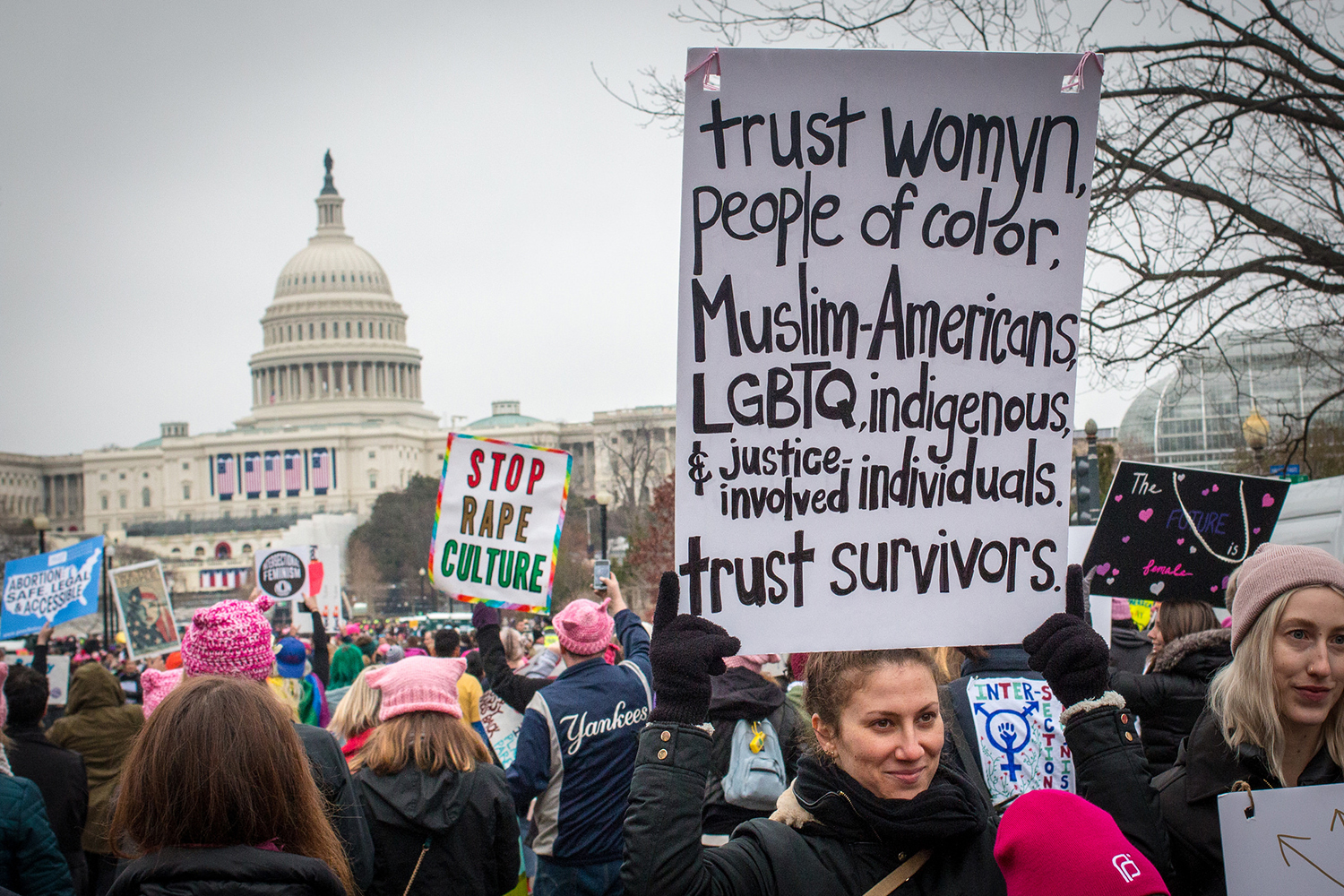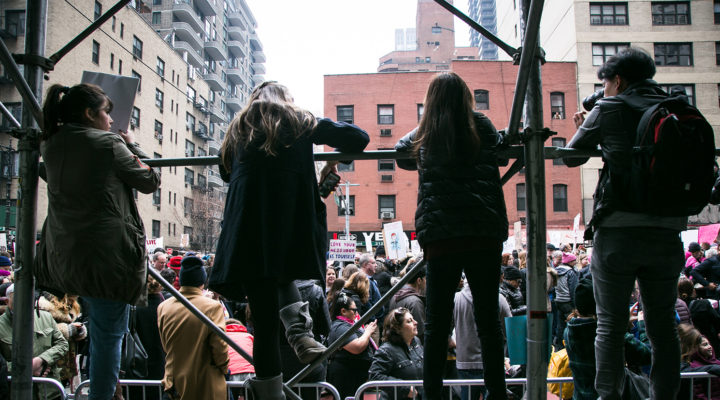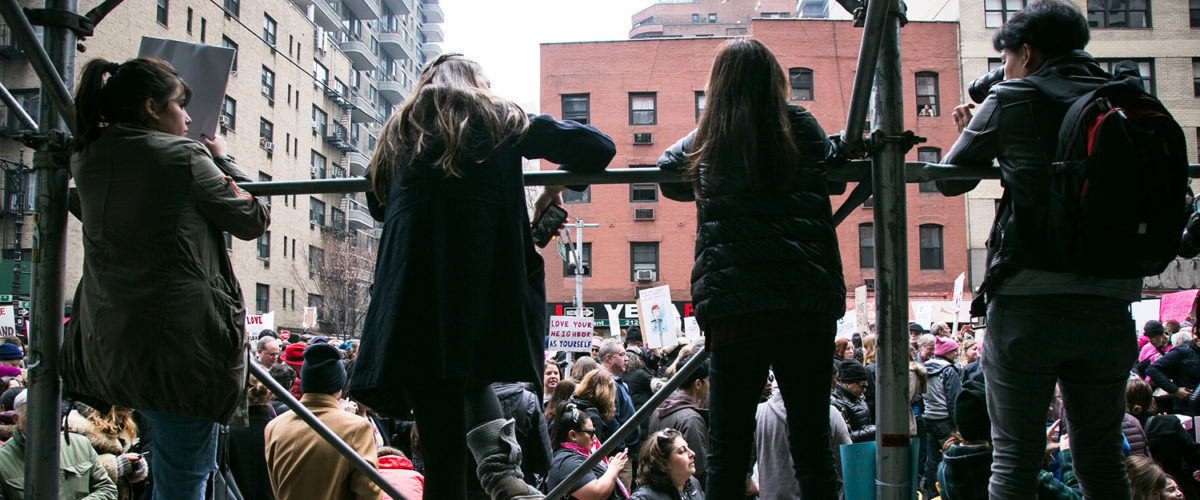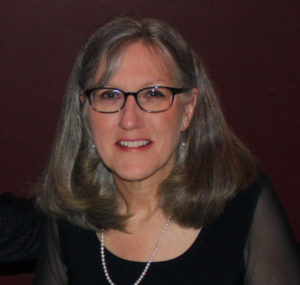Donald Trump’s November victory and January inauguration cast many into despair about the nation’s future and into doubt about its values.
But Trump’s presidency so far has also produced at least one upside: to inspire tens of thousands, if not millions, of Americans into activism around issues ranging from the environment and immigration to women’s rights and Islamophobia.
People previously uninvolved in local, state or national grassroots movements are now participating and even leading movements that didn’t exist in November.
“I would say that’s me,” said Macon, Ga. resident Claire Cox, a founding member and leader of the new and rapidly growing Georgia Women and Those Who Stand With Us group.
Cox didn’t participate in any of the January women’s marches, but was inspired by them to begin a local movement that has grown to hundreds of followers and participants in the past couple of months.
“I’m not used to being in a lead role like this,” she said.
But for every newborn activist like Cox, there are others who don’t know how to get involved.
“People of faith and people of no faith — progressives — are struggling with how to respond to this,” said Nancy Petty, a veteran interfaith and social activist and pastor of Pullen Memorial Baptist Church in Raleigh, N.C.
Petty and others heavily involved in social justice causes say leaders must take some of the initiative for channeling newcomers into the causes, organizations and roles that fit them.
“It’s about how do we build communities of people who are very diverse but who can stand together and protest violence and the treating one human being is if they are not human beings,” she said.
Americans are waking up as they realize what is happening.
“Since November I have been talking to people who say to me, ‘I’m trying to figure out what I am called to do right now,’” Petty said.
‘A golden age of civic involvement’
In response, workshops and other forums of training are being offered to citizens previously uninvolved in various forms of activism.
And the demand would seem to be strong for those resources.
The ACLU reported just days after Trump’s election that support for its efforts had spiked.
“Since Election Day, the ACLU has seen a renewed sense of urgency from hundreds of thousands of Americans to protect civil liberties,” Anthony Romero, the organization’s executive director, said on the organization’s website.
Its Facebook followers increased 25 percent to almost 1 million from Nov. 8 and Nov. 14, when Romero penned his statement. Another 150,000 had joined the organization’s email list in that time.
“This is the greatest outpouring of support for the ACLU in our nearly 100-year history,” Romero said.
Organizations like Planned Parenthood and the ADL, which opposes anti-Semitism and other forms of bigotry, reported similar reactions, the website Mashable reported.
The women’s marches in January provided one of the most visible examples. Citing data provided by crowd scientists, Vice News reported that 3.2 million people participated in the demonstrations in 300 cities across the nation.

Millions of women participated in the Women’s Marches across the nation in January. (Photo/Liz Lemon/Creative Common)
It may all add up to one of the most powerful protest cultures, locally and nationally, in decades.
“If organizers succeed, it could herald a golden age of civic involvement on the left unlike anything since the 1960s,” Mashable observed in November.
Activism rising rapidly
But many Americans need guidance in how to best emerge from their homes and onto the streets, said Thomas Carr, pastor of Second Baptist Church of Suffield, Conn, and co-coordinator of the American Baptist Creation Justice Network.
Carr is also a seasoned protester and demonstrator and has been arrested for acts of civil disobedience.
But there is a misconception that protesting means frightening encounters with police and possibly being incarcerated. Not all events involve civil disobedience and not all civil disobedience events involve being arrested or encountering authorities and private security, he said.
Carr said it’s important that potential activists do their homework about what kind of events, causes and organizations they want to be involved with.
“Find out which groups are sponsoring [a protest or demonstration] and see what they stand for,” Carr said. “If what they believe in is what you believe in, I would encourage them to go to those marches.”
It’s also a good idea to take a friend or two because being alone at a march can be very lonely and intimidating for first-timers.
“Protests and activism are rising very rapidly. I’ve been stunned by it the past couple of months,” he said.
‘To promote an ethos’
Natalie Bourdon saw that interest rising so quickly in recent months that she decided to put on a workshop for those interested in learning more.
“The last presidential election did galvanize people and spur them to want to do something in their local communities and to do something that would affect the local and national discourse.”
“A Student’s Guide to Activism” was held March 26 at Mercer University in Macon, Ga., where about 80 students attended main sessions and breakouts covering topics like health care accessibility, the environment, foreign policy issues, women’s and immigrants’ rights, and more.
Bourdon, an associate professor of women’s and gender studies, and also of anthropology, said she got the inspiration after she returned from the Women’s March in Washington, D.C.
Students began approaching her asking how they could get involve involved.
“The last presidential election did galvanize people and spur them to want to do something in their local communities and to do something that would affect the local and national discourse,” she said.
The Mercer workshop was designed to plug students into that discourse and to show them they can create change.
“It’s to promote an ethos of being the change you want to see in the world,” Bourdon said.
‘But I am now’
Cox said the Georgia Women groups she’s involved with is planning a workshop April 8. National-level advocacy, the environment, health care, equality and education are among the topics.
The event is for those not involved in advocacy.
Cox said she knows how they feel: motivated to act, but uncertain how to do so.
Prior to the election and the Women’s March, Cox served others primarily through ministries at Centenary United Methodist Church, where she is a long-time member.
Working with youth, rehabbing homes in distressed neighborhoods and other church activities were how Cox said she lived her faith before Trump’s election.
Today, she’s one of the leaders of a grassroots advocacy organization, talking to media, organizing meetings and encouraging others to join in.
“I was never involved in politics, but I am now,” she said.



